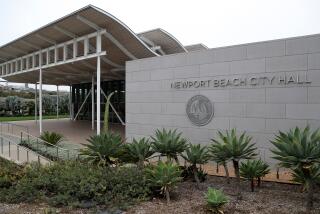Yes on Propositions 1D and 1E
Propositions 1D and 1E would take money away from two of the most vulnerable populations in California -- low-income children and the mentally ill. They would counter the will of the voters, who chose to create special taxes to fund progressive new programs for these groups, and would probably worsen homelessness and poverty. About the only thing worse than passing them would be not passing them.
Like the other measures on the May 19 ballot, these two are part of a package put together by the Legislature after months of acrimonious negotiations. Also like the others, they bear the stamp of tit-for-tat deal-making. Both involve cuts to programs favored by Democrats, and one of them, 1E, targets the brainchild of state Senate President Pro Tem Darrell Steinberg (D-Sacramento). Steinberg and fellow Democrats doubtless offered them up to Republicans as a compromise to persuade them to accept the tax increases approved in budget negotiations.
Proposition 1D targets money raised under Proposition 10, which voters narrowly passed in 1998. It imposed a 50-cents-per-pack tax on cigarettes and dedicated the money toward early childhood development programs. Proposition 1D would seize $268 million per year of that tobacco tax money, or half of the current revenue it generates, for five years and use it to fill holes in the state’s general fund. Because the number of smokers in California is falling steadily, by the fifth year the initiative would grab up to 70% of the tax revenues.
Proposition 10 has taken its share of criticism in the decade since it was approved, because it contained few specifics about how the money should be spent. Most of it is allocated by “First 5” commissions in each of the state’s 58 counties, which divvy it out to programs that support at-risk children under 5. That leaves plenty of room for disagreement about spending priorities, and First 5 generated controversy in 2006 when it spent millions on ads that appeared to promote a ballot initiative backed by movie producer Rob Reiner, who was then chairman of the organization’s statewide governing board.
Yet First 5 has done a lot of good work across the state, funding healthcare for children whose parents can’t afford insurance, helping families in crisis and sending kids to preschool. Such early intervention saves lives, keeps families together and improves the odds that children will do well in school and hold jobs once they graduate. So it’s with heavy hearts that we recommend a yes vote on Proposition 1D.
California voters have an unfortunate fondness for ballot-box budgeting -- putting walls up around favored projects by creating dedicated funding sources. Proposition 10 is a prime example, imposing a new tax and directing the money toward a specific goal, rather than just putting it in the general fund and letting lawmakers spend it how they choose. This ties the Legislature’s hands when times get tight, as they are now.
In the face of a $42-billion budget hole, spending on a wide variety of worthwhile projects had to be slashed. Unfortunately, that included the programs funded by First 5. The painful decision to make those cuts was better left to lawmakers, but because voters created the tobacco tax, it’s now up to them rededicate the money. The next time voters wonder why California seems to hold a special election every other month, they need just look in the mirror.
The blow to First 5 if Proposition 1D passes will be softened by the fact that the organization has about $2.5 billion in unspent money held in reserve. Some counties, such as Los Angeles and Orange, have big reserves, while others have none, so the loss of funding will be felt more in some parts of the state than others. In general, though, it’s usually better to erase future projects from the drawing board than to eliminate those that already exist. And if Proposition 1D fails, the $268 million a year will have to come from somewhere else in the state budget. Most likely to feel the ax are foster care and health and welfare programs that are even more basic than the projects funded by First 5.
Proposition 1E involves principles that are identical to those in Proposition 1D, even if the specifics differ. The money it aims to grab comes from Proposition 63, which voters approved in 2004. This measure imposed a 1% income tax on people who make more than $1 million a year, and dedicated the money toward services for the mentally ill. Proposition 1E would take about $230 million of this tax money for two years and spend it instead on a federally mandated program for screening and diagnosing young Medi-Cal beneficiaries.
If anything, we’re even more appalled by 1E than 1D -- yet equally convinced of its necessity. California betrayed its mentally ill in 1967 when it passed a law that ended most involuntary commitments to state mental hospitals, based on a theory that this population would be better served in community-based centers. That might have been true, but the funding to build those centers never materialized. The result: generations of disposable humans, men and women incapable of caring for themselves and left to live or die on the streets. Proposition 63 relied on a shortsighted funding mechanism, but it at least went a small way toward righting that wrong.
Yet once again, reallocating the Proposition 63 money is likely to hurt future projects, not existing ones. Just as with Proposition 1D, the state has $2.5 billion in “millionaire tax” money that hasn’t yet been spent. That will reduce the damage from a two-year reduction in funding. Harmful as the cuts will be, they’re less harmful than taking the $230 million from schools, or Medi-Cal, or other vital state programs.
There aren’t any good options when faced with a cavernous budget gap, forcing voters to pick the least bad ones. The Times urges a yes vote on propositions 1D and 1E -- the lesser evils.
More to Read
A cure for the common opinion
Get thought-provoking perspectives with our weekly newsletter.
You may occasionally receive promotional content from the Los Angeles Times.






